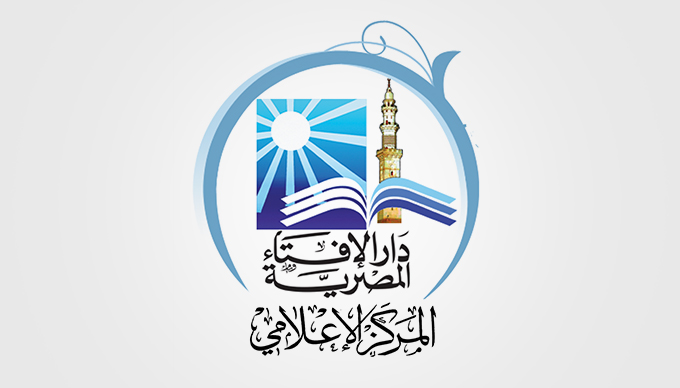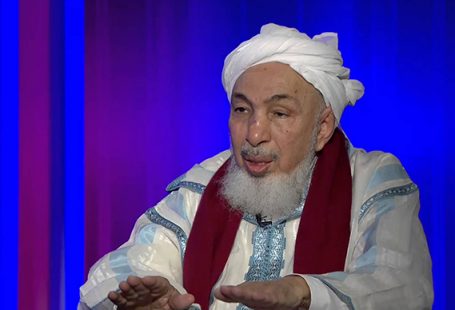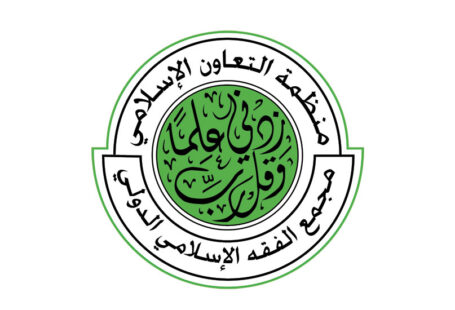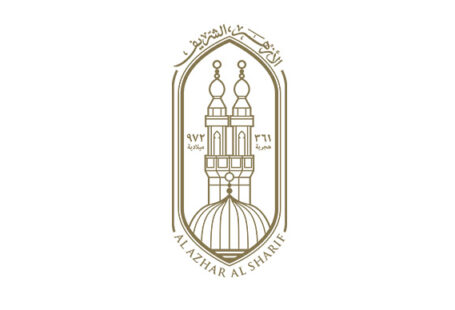Dar al-Ifta al-Missriyyah is one of Egypt’s centers for Islamic legal research. It was established in 1895 and is considered one of the earliest modern fatwa producing institutes. Dar al-Ifta al Missriyyah is among the pillars of the religious foundations in Egypt, which include Al-Azhar Mosque, Al-Azhar University, Ministry of Religious Endowments, and Dar al-Ifta al-Missriyyah. It plays a significant role in giving rulings to the masses and in consultation to the judiciary in Egypt.
The fatwa starts by stating that the question of whether UNHCR can collect and distribute Zakat or not is linked to several topics that need to be introduced before giving the final answer (all the points below are supported throughout the fatwa by references from books of Fiqh (Islamic jurisprudence)):
- First topic: transferring Zakat abroad
Transferring Zakat refers to distributing Zakat to people who are not at the place where it is collected at the time of its obligation.
The opinion chosen for the fatwa is that it is allowed to transfer Zakat funds from a place where there are beneficiaries, to other beneficiaries abroad.
This opinion relies on the following arguments:
- The verse 60 of Surah 9 in the Quran states the categories of beneficiaries without mentioning anything related to location, the verse is general.
- The hadeeth of Mu’adh in which the Prophet (peace be upon him) says to him before Mu’adh goes to Yemen: “take alms from their rich for their poor” does not mean that it has to be given to the people of Yemen, but “their” here refers to Muslims in general.
- When someone came to the Prophet (peace be upon him) and told him he needed financial support, the Prophet told him: “stay until a donation comes to us, we will then order to give it to you…” Some scholars say that this is an argument in favor of transferring Zakat abroad.
- The argument of analogy (qiyaas), based on the permissibility of transferring wills and other financial obligations. Obligatory donations for purification are not specific to the countries of the donations.
This opinion is the one of the majority of scholars. The fatwa then mentions a list of scholars to prove this.
Furthermore, the scholars who are against transferring Zakat abroad assert that it is allowed in case of need. The fatwa quotes numerous references about this.
- Second topic: giving Zakat to one category of legitimate beneficiaries
The categories of legitimate beneficiaries for Zakat are described in verse 60, Surah 9, in the Quran:
{Zakat expenditures are only for the poor and for the needy and for those employed to collect [Zakat] and for bringing hearts together [for Islam] and for freeing captives [or slaves] and for those in debt and for the cause of Allah and for the [stranded] traveller – an obligation [imposed] by Allah. And Allah is Knowing and Wise}.
The scholars have different opinions on the obligation of distributing Zakat equally to the eight categories. The majority of scholars, including the Hanafi, Maliki and Hanbali schools, says it is allowed to distribute Zakat to only one of the eight categories. It is even allowed for them to give it to one single person of one of the categories. This is the opinion chosen for the fatwa. The arguments for this are as follows:
- The hadeeth of Mu’adh mentioned above. The Prophet (peace be upon him) said “from their rich to their poor”. He mentions only one category, Al Fuqara. This is also a proof that Zakat can be given to one person, since in Arabic when the plural form (here “their rich”) is confronted to another plural form (“their poor”) it indicates a parallel between the singular elements of these plurals, i.e. one for one.
- The hadeeth where the Prophet (peace be upon him) gave Zakat to some people and not others. The ones that did not receive it complained. He told them that he did that to appease the hearts of the ones who received it. Therefore he only gave to one category, namely Al Muallafati Quluubuhum (for bringing hearts together [for Islam]).
- Allah in the Quran orders to devote Zakat to these categories because of their needs. So it is understood that the aim is to respond to these needs. And the need is present in all categories, even if they differ in names.
Regarding the Shafi’i school, even if the official opinion is that it is obligatory to distribute Zakat equally between the eight categories, the scholars from the third generation follow the opinion of the majority when giving fatwa, because of the hardship of the official opinion. Some of them actually said: “if Shafi’i was alive today, he would give this fatwa.”
- Third topic: giving Zakat through an intermediary
Using an agent for Zakat is allowed, as it is a financial right, like it is allowed for debts between human beings.
There is no difference regarding this matter between the agent being Muslim or non-Muslim. This is the opinion of the Hanafi, Shafi’i and some Hanbali scholars. Several Islamic books are then quoted as references.
The fatwa mentions here that it can be argued that taking these texts for our question is not the most relevant, as they refer to a case where the agent is a natural person, not a legal one. It then details the differences between a natural and a legal person. It mentions that the concept of a legal person is present in the books of Fiqh, as it is the case for the Waqf, Bayt Al Maal (equivalent of a Ministry of Finance), mosques or companies.
- Fourth topic: the intention when giving Zakat
It is obligatory for the Zakat donor to have the intention of giving Zakat when he or she gives Zakat, whether Zakat is given directly to the poor or through an agent who will distribute it to legitimate beneficiaries. So the Zakat donor needs to make the intention that this amount is his or her Zakat, because Zakat is an act of worship. It is not valid without the intention. The Prophet (peace be upon him) said: “Verily actions are by intentions.” If the person owning the money made the intention when paying Zakat, then it is not required from the Zakat agent. In case of the Zakat agent being non-Muslim, the Shafi’i scholars require two conditions: the identification of the Zakat receiver by the donor, and knowing that the former received Zakat.
The fatwa states that it does not see these two conditions as being necessary in the case of UNHCR, because of the difference between a natural and a legal person.
- Fifth topic: giving Zakat to non-Muslims
It is known in the Shari’ah that Zakat cannot be given to non-Muslims, as it should be taken from the rich Muslims and given to the poor Muslims, because of the hadeeth of Mu’adh mentioned above. This is the opinion of the large majority of scholars. Some scholars like Ibn Al Munzir or Ibn Al Qudhama say that there is a consensus among scholars on this.
As for Zakat al fitr, it can be given to Muslims or non-Muslims alike according to Abu Haneefah and his student Muhammad. But the majority of scholars disagree and state that it has to be given to Muslims.
As for Sadaqah, this is more flexible than Zakat and can be given to non-Muslims, as long as they are not in war with Muslims. The fatwa gives the arguments of the Quran and Sunnah to prove this.
- Sixth topic: the qualification of the situation of refugees
If the word ‘refugee’ does not appear as such in religious texts, other terms with similar meanings can be found, like protection, security or emigration.
The word ‘protection’ appears in the verse 6 of Surah 9 of the Quran:
{And if any one of the polytheists seeks your protection, then grant him protection so that he may hear the words of Allah. Then deliver him to his place of safety. That is because they are a people who do not know}.
As for the word ‘security’ it appears in the verse 125 of Surah 2:
{And when We made the House a place of return for the people and [a place of] security}.
As for ‘emigrant’ it appears in the verse 8 of Surah 59:
{For the poor emigrants who were expelled from their homes and their properties, seeking bounty from Allah and [His] approval and supporting Allah and His Messenger, [there is also a share]. Those are the truthful}.
Allah defined the categories to which Zakat should be given, and it is not allowed to give it to others.
The qualification of a person as being a ‘refugee’ does not necessarily imply that the person enters into one of the categories. It depends on the situation of this refugee. Some refugees might be rich, while others might be poor, even if the majority is indeed poor.
In practice the categories under which refugees generally enter are: the Fuqara (poor), the Masakeen (needy), the Gharimeen (debtors), Fi Sabilillah (in the path of God) and the Abna’ Sabeel (stranded travellers).
The Faqeer (poor) refers to someone who has no money or no way of earning enough to survive.
The Miskeen (needy) refers to someone who can earn enough money to survive, but not to cover his needs.
According to these definitions, the Faqeer is in more need than the Miskeen. This is the opinion of the Shafi’i school, and other scholars are of the opposite position.
As for the Ghareem (debtor), it is of different categories. The one that is the closest to the situation of the refugee is: the person who takes a debt for him/her or for his/her family for a lawful purpose. And when time comes to pay back, he or she does not have enough.
It is also the case of the person who takes a loan for a forbidden purpose, but then uses the money for a lawful purpose; or takes a loan for a forbidden purpose, then repents.
Refugees can also enter under the category of Abna’ Sabeel according to the Hanafi position that considers from this category the person who is far from his or her money, not able to use it. This can be the case for some refugees, who do have money and goods in their countries but cannot reach or benefit from them.
The fatwa ends up with stating that, from all of the above, it is allowed to give Zakat to UNHCR as an agent for distributing it to the legitimate beneficiaries among the displaced populations, even if it implies transferring the money abroad. This is allowed if:
- The persons receiving Zakat are legitimate, i.e. are Muslims and enter under one of the categories of Zakat recipients defined by the Shari’ah.
- UNHCR does not take anything from Zakat funds as a compensation for its work. If this compensation is required, it should come from other sources than Zakat.
- There are enough guarantees that UNHCR will respect all of this.











Social Profiles